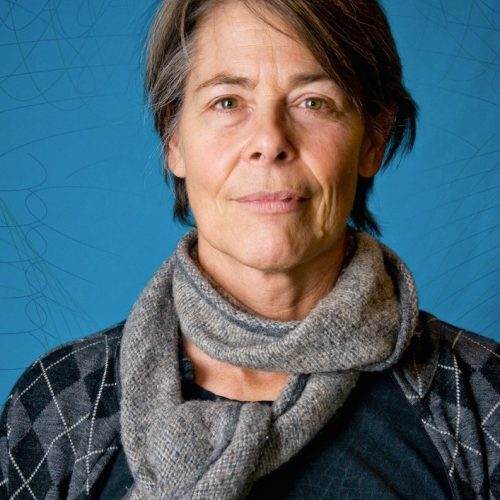Clay Chaplin
Clay Chaplin is a computer musician, improviser, and audio engineer from Los Angeles who explores the realms of audio-visual improvisation, sound synthesis, field recording, electronics, and computer processing for creative sonic expression. Throughout his career he has worked on many projects involving experimental music, video, audio recording, and interactive computer systems. Chaplin studied composition and computer music with Morton Subotnick, Tom Erbe, Mark Trayle, Ichiro Fujinaga and Gary Nelson. He studied audio engineering with Tom Erbe, Ron Streicher and Jurgen Wahl.
Clay’s works have been performed internationally including performances at the San Francisco Electronic Music Festival, the Bent Festival, the Busan International Computer Music Festival, the Deutsche Gesellschaft fur Elektroakustiche Musik (DEGEM) studios, the Ear Zoom Sonic Arts festival, the Studio for Electro-Instrumental Music (STEIM), the New Interfaces for Musical Expression (NIME) conferences, the Center for Contemporary Music at Mills College (CCM), the Lincoln Center Out-of-Doors Festival, the Olympia Experimental Music Festival, the Korean Electro-Acoustic Society Festival, the Sonic Circuits Festivals, the Santa Fe Electronic Music Festival and many others. Clay has been composer in residence at STEIM and the Center for Contemporary Music at Mills College.
Clay has given talks about experimental sound practices for the American Composer’s Forum, the Machine Project gallery, the Sea and Space Explorations gallery, the Telic gallery, Otis College, and the Center for Research in the Computing Arts (CRCA) at UCSD. Clay is currently the Director of the Computer Music and Experimental Media studios at the Herb Alpert School of Music at CalArts and is Co-director of the Experimental Sound Practices program.
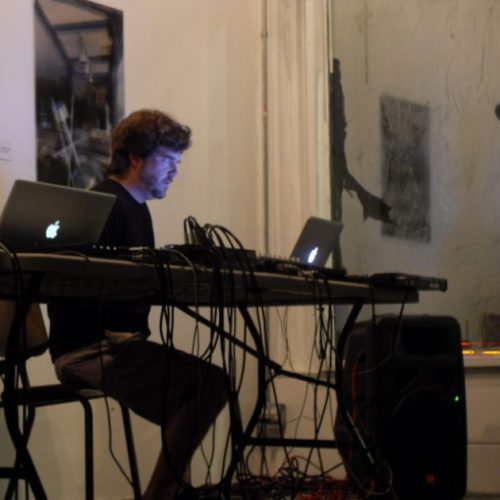
Tim Feeney
Tim Feeney performs, composes, and improvises sounds in and for forests and waterfronts, investigating unstable sound and duration. He appears in bookstores and basements with Sarah Hennies and Greg Stuart as the trio Meridian; in galleries and libraries with Vic Rawlings and Annie Lewandowski; in living rooms and warehouses with Clay Chaplin and Davy Sumner; in tunnels and train stops with Cody Putman and Cassia Streb as the trio Tasting Menu; in colleges and museums with Andrew Raffo Dewar, Holland Hopson, and Jane Cassidy; on recordings for Weighter, Intakt, Black Truffle, Rhizome.s, Caduc, Full Spectrum, Sedimental, and Marginal Frequency; and in the occasional festival or concert hall with Anthony Braxton and Ingrid Laubrock.
Tim also builds sound installations exploring the acoustic properties and geographies of neglected spaces. His recent work has been presented by festivals at locations including Silo City, an abandoned grain silo and shipping complex along the river in Buffalo, New York; Boston’s Metropolitan Waterworks Museum, a preserved steam pumping station that processed the city’s drinking water; and the Bernheim Research Forest, outside Louisville, Kentucky; as well as by more formal events at the Contemporary Art Center New Orleans; the Ringling Museum of Art in Sarasota, Florida; and the University of Richmond.
He is a faculty member in percussion, improvisation, composition, and experimental sound practices at the California Institute of the Arts, and previously taught at the University of Alabama and Cornell University.
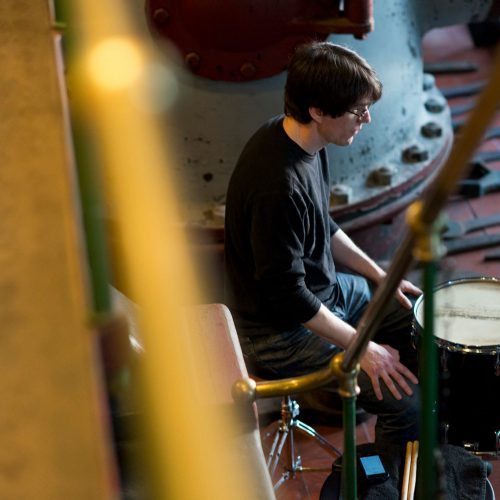
Ulrich Krieger
Ulrich Krieger is an internationally recognized German composer and saxophonist living in Southern California. He is known for his originality and innovation in composed and free improvised contemporary music. As a celebrated composer of chamber and electronic music, Krieger’s compositions are widely performed by ensembles in Europe and the USA. He works in variety of contexts; from new and experimental music to free improvisation, electronic music, reductionsim, noise, ambient, rock and metal.
Outside Krieger’s solo practice, he has performed extensively with his groups Metal Machine Trio and Text of Light. He has collaborated and performed with Lou Reed, Faust, Merzbow, Thomas Köner, Carl Stone, John Zorn, Lee Ranaldo, Christian Marclay, Laurie Anderson, LaMonte Young, Phill Niblock, Radu Malfatti, Berlin Philharmonics, Ensemble Modern, PARTCH Ensemble, and many more. As a saxophonist he has performed in Europe, the Americas, Asia and Australia. Krieger studied classical/contemporary saxophone, composition, electronic music, and musicology in Berlin and New York. He is professor for composition, Experimental Sound Practices, and rock music at CalArts, where his special field of interest is the cross-pollination of new art music and avant-garde rock.
Krieger’s recent focus lies on the fringes of contemporary rock culture, in the areas of limbo where noise, metal, silence, and experimental chamber music meet. Not accepting stylistic categories, Krieger’s practice operates in the margins of 21st century genres while resisting the problematic trappings of appropriation. His compositional approaches include micro-sounds, microtones, reductionism, ‘instrumental electronics’ (instrumental music evoking the soundworld of electronics), drone, and noise; forms that often demand elaborate and nuanced amplification.
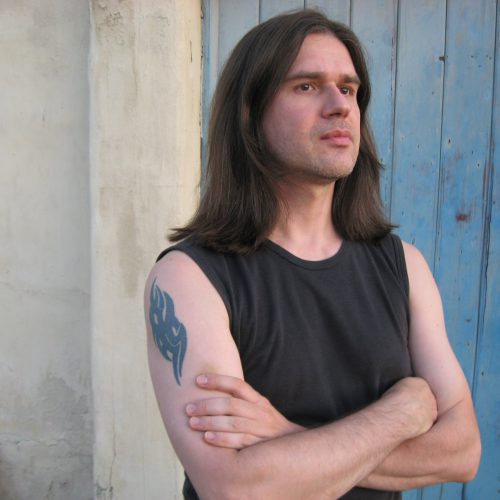
Michael Pisaro
Michael Pisaro (born 1961 in Buffalo, New York) is a guitarist and composer. He is member of the Wandelweiser collective. While, like other members of Wandelweiser, Pisaro is known for pieces of long duration with periods of silence, in the past fifteen years his work has branched out in many directions, including work with field recording, electronics, improvisation and large ensembles of very different kinds of instrumental constitution. Called “patient, unpredictable, exceedingly beautiful” by the New York Times, Pisaro’s music has been featured on many recordings in the last decade. Ben Ratliff of the Times writes: “The American composer Michael Pisaro likes his music to develop as a slow-motion force, with adjustments of tone and pitch and instrumentation so long-brewing that you lose your awareness of the player’s hand and the composer’s will.”
Pisaro has a long-standing collaboration with percussionist Greg Stuart, with over thirty collaborations (pieces and recordings) to date, including their 3-disc set, Continuum Unbound from 2014. The work together on Pisaro’s evening length work for 100 percussion, A wave and waves, was featured at the Melbourne Festival (October, 2015) and Atlanta’s Elevate festival (October, 2016), the Big Ears (Knokville, March, 2017) and Banff (July 2017). Recent portrait concerts of his music have been given in London, Paris, New York, Santiago, St. Petersburg, Lille, The Hague, Tokyo, Glasgow, Moscow, Chicago, Wrocłow, Munich, Sydney, Buenos Aires, Madrid, Brussels, Montpelier, Caracas, Boston, Berlin, Houston, Bologna, Trondheim, Amsterdam, Nantes, Mexico City, Seattle and elsewhere. Recordings of his work have been released by Edition Wandelweiser Records, erstwhile records, New World Records, another timbre, slubmusic, Cathnor, Senufo Editions, winds measure, HEM Berlin and on Pisaro’s own imprint, Gravity Wave.
Before joining the composition faculty at the California Institute of the Arts, he taught music composition at Northwestern University. In 2005/6 he was awarded a grant from the Foundation for Contemporary Arts. He was Fromm Foundation Visiting Professor of Music Composition at in the Department of Music at Harvard in the Fall of 2014.
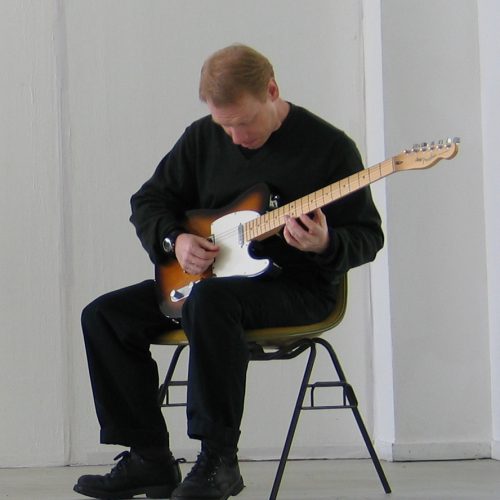
Sara Roberts – Emiritus Faculty
Sara Roberts received her master’s degree from the California College of Arts and Crafts in 1988. Her thesis project, the interactive video installation Early Programming has shown at the San Francisco Arts Commission Gallery (1989) and the Long Beach Museum of Art (1990). She collaborated with media artist Lynn Hershman on interactive installations Deep Contact (1990), and A Room of One’s Own (1992), shown internationally, including Ars Electronica ’89; the San Francisco Museum of Modern Art; Images du Futur ’91 in Montreal; Carpenter Center at Harvard; Montage ’93 in Rochester, N.Y.; International Center for Photography, Midtown, N.Y.; and in Cologne, Munich, Bonn and Karlsruhe, Germany. At that time she also worked extensively in feature film editing at Zoetrope Studios and at Lucasfilm’s Skywalker Ranch. In 1993 she was a resident at the Djerassi Foundation and her interactive sculpture The Digital Museum was commissioned by Silicon Graphics for the Interactive Gallery in Moscone Center, San Francisco. In 1994 she received a WESTAF grant for New Genres and completed Elective Affinities, a large scale installation shown at the Yerba Buena Center for the Arts in San Francisco and Art Center, Pasadena. She is a founding member of Techne, a group of artists working with ubiquitous (off the screen) interactivity. She has taught at San Francisco State University, The San Francisco Art Institute and the California College of Arts & Crafts.
